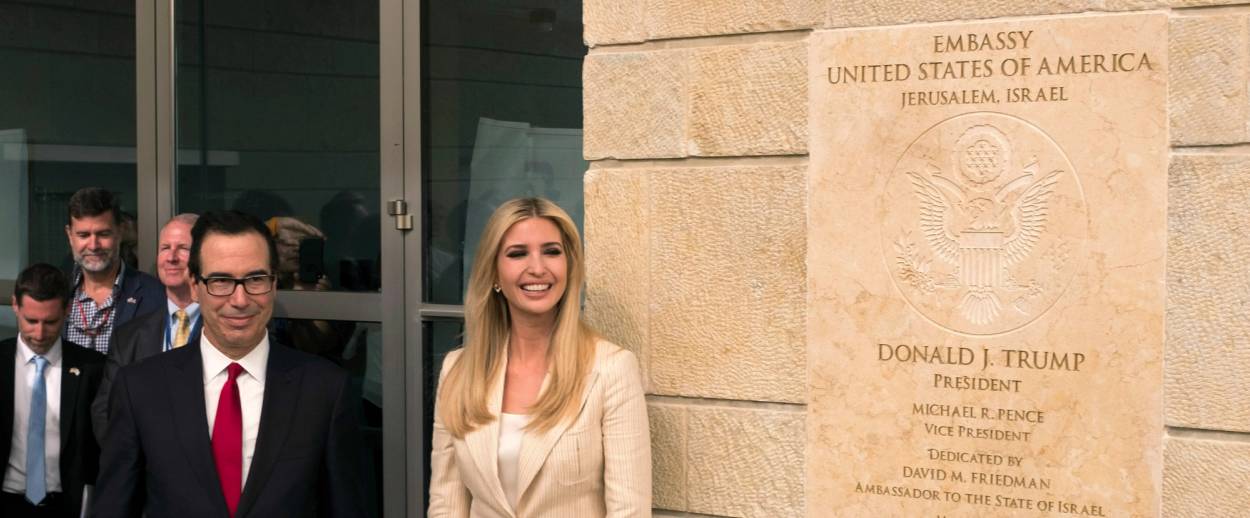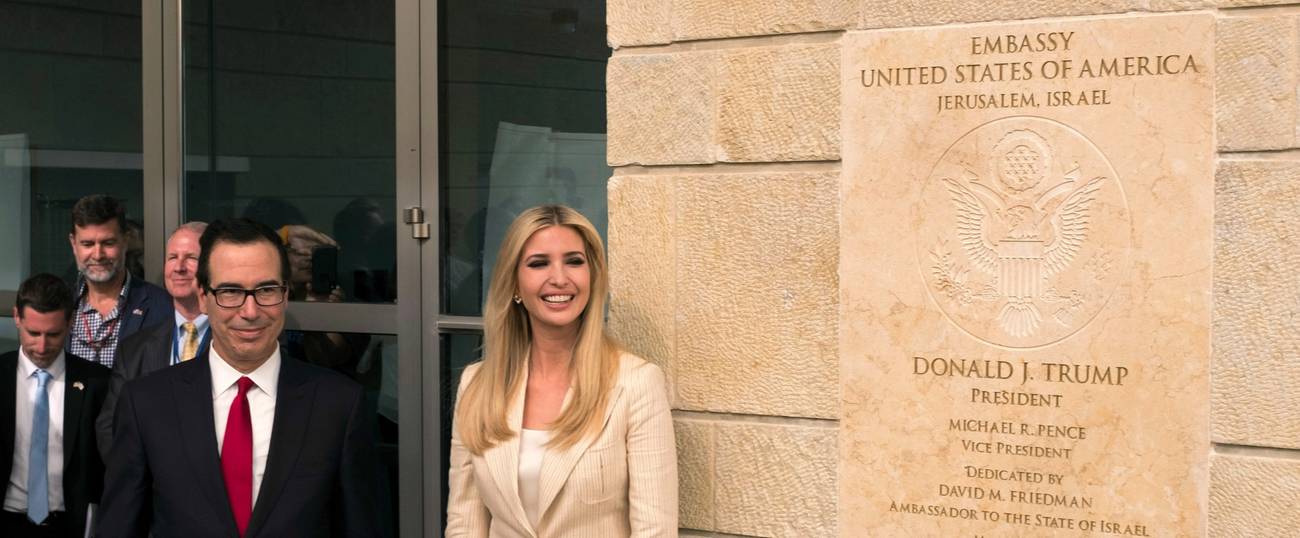Trump Just Made it Much More Likely the Next Democratic President Will Open an Embassy to Palestine in Jerusalem
The very arguments advanced to support the embassy move today can easily be repurposed tomorrow




Today, the United States officially opened its new embassy to Israel in Jerusalem. The event has provoked the predictable punditry from partisans, amidst protests, violence, and self-congratulation. Lost in the churn of the news cycle and its obsession with the present, however, is what this moment portends for the future. The myopia obscures a great irony: by opening an American embassy to Israel in Jerusalem, Trump opened the door there for an embassy to Palestine.
This assertion may seem far-fetched on the surface, but the logic behind it is actually quite straightforward.
As supporters of the current embassy move have pointed out, Congress has repeatedly voted by an overwhelming margin to recognize Jerusalem as Israel’s capital and move the American embassy there. (It’s a position that dates as far back as Hubert Humphrey.) But that legislation had another component: a national security waiver that every president until Trump has used to defer the embassy move in the interests of pursuing a negotiated peace. Until today, the intention of American leaders was to wait until an agreement was struck, and then recognize Jerusalem as the capital of two states—Israel and Palestine—with embassies to both.
By forgoing the waiver and moving America’s embassy to Jerusalem today, however, Trump has determined that this foreign policy logic no longer applies. According to his administration, a peace agreement is not a prerequisite to establishing an embassy in Jerusalem. Right now, this decision has buoyed the Israeli position. But the precedent is a sword that cuts both ways.
After all, if it is no longer an American foreign policy interest to defer the establishment of embassies in Jerusalem until after a peace deal, then there is no reason a future Democratic president cannot open an embassy to Palestine in East Jerusalem. In fact, doing so would likely be seen as the natural counterbalance to Trump’s move, and a way to reestablish U.S. credibility as a neutral Israeli-Palestinian broker. Moreover, the Palestinian embassy would reasonably be viewed as a step towards establishing two states, with Jerusalem as their shared capital. In one simple step, then, a future Democratic administration could use Trump’s own logic to correct his current course.
As former Obama ambassador to Israel Daniel Shapiro shrewdly observed in a longer discussion of the day’s events, “Inadvertently or not, Trump has opened the door for much more frank discussion about an eventual Palestinian capital and U.S. Embassy to Palestine in East Jerusalem.” The very arguments made to advance the embassy move today can be easily repurposed to justify one for Palestine tomorrow. As Senate Minority Leader Chuck Schumer put it this morning, “Every nation has the right to choose its own capital.”
As with all things in the Middle East, those declaring victory would be wise to wait for the verdict of history.
Yair Rosenberg is a senior writer at Tablet. Subscribe to his newsletter, listen to his music, and follow him on Twitter and Facebook.